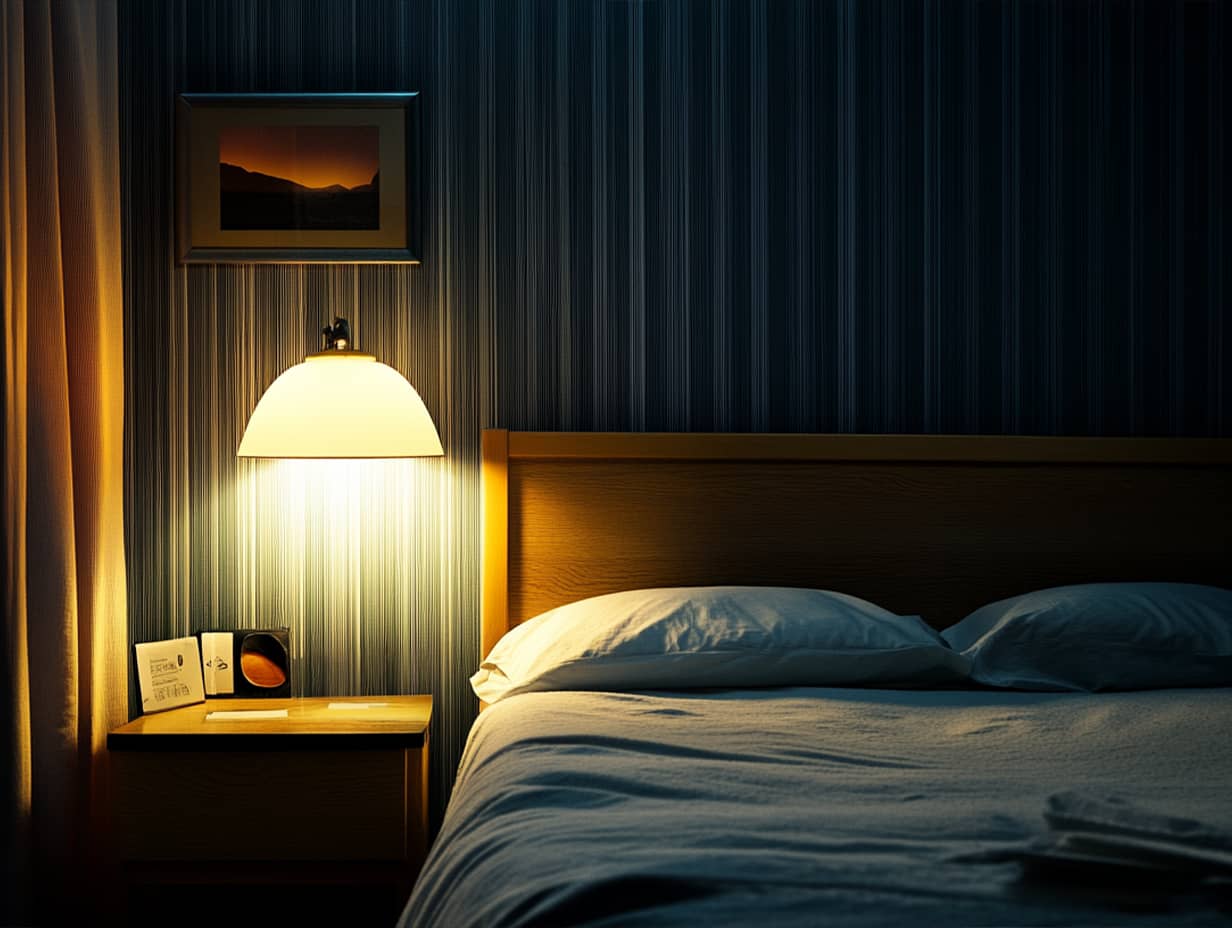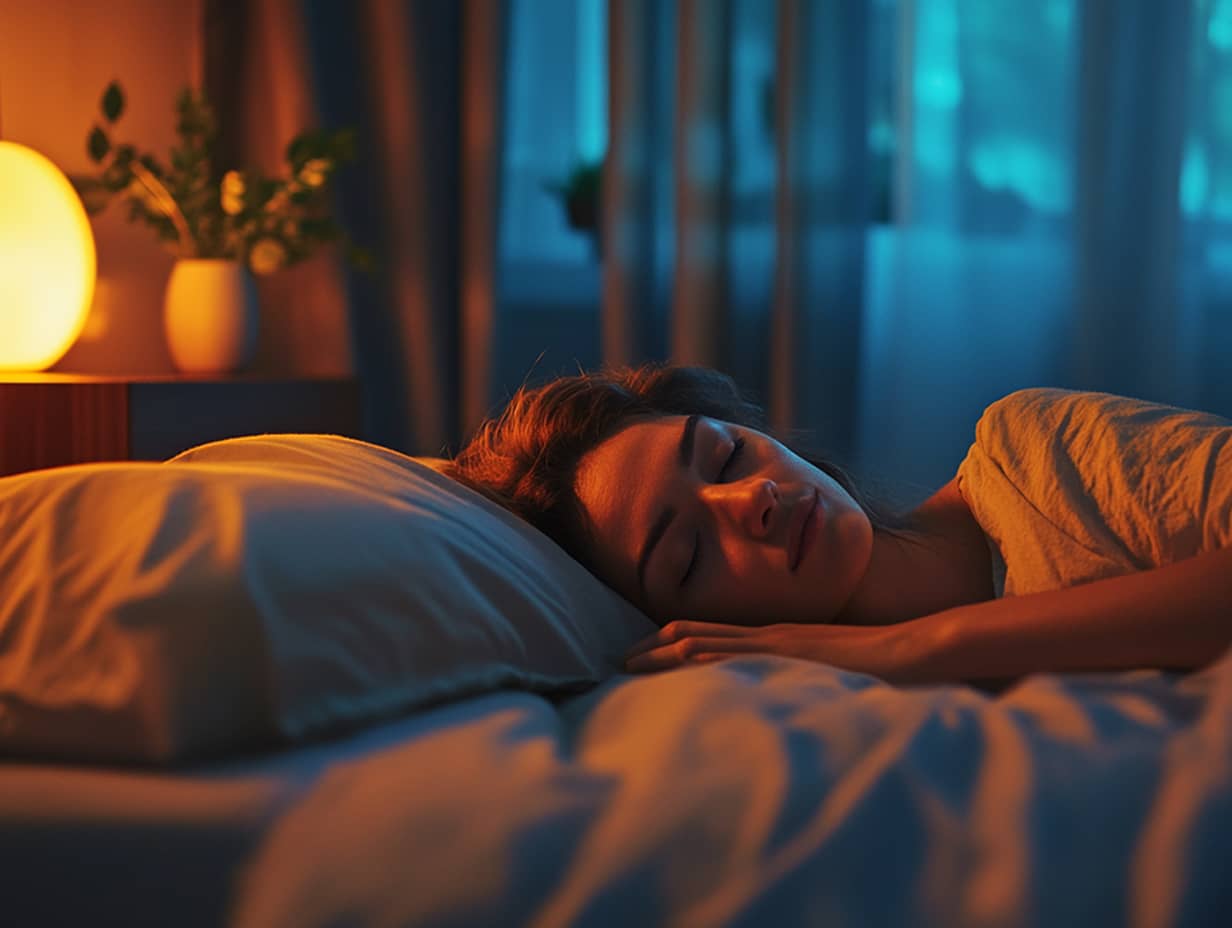Menopause and Trouble Sleeping: Strategies for Better Rest
Sleep Health
Oct 1, 2024
Share this blog:

The Menopausal Sleep Struggle
For many women navigating menopause, sleep disruption is all too common. The hormonal rollercoaster of menopause doesn't just bring hot flashes and mood swings. It often wreaks havoc on our sleep health, too.
Menopause and trouble sleeping go hand in hand, with over 60% of menopausal women reporting sleep disturbances. The culprit? Fluctuating levels of estrogen and progesterone. These play crucial roles in regulating our sleep-wake cycles and body temperature. As these hormones decline, our circadian pacemaker can become disrupted. This leads to difficulties falling asleep, sustaining sleep, and waking up refreshed.
But here's the good news: you don't have to resort to difficulty sleeping during menopause. This article will equip you with practical strategies. We include tips to manage your routine and improve your sleep health during menopause. You’ll learn about lifestyle adjustments and targeted interventions. We'll also explore evidence-based approaches to help you reclaim hours of restorative sleep.

Understanding Menopause and Sleep Disruptions
During menopause, your circadian pacemaker faces a significant challenge. The hormonal rollercoaster includes the decline in estrogen and progesterone. This decline can wreak havoc on your sleep health.
Common sleep issues during menopause include:
Night sweats that disrupt your sleep cycle
Difficulty falling asleep or staying asleep (insomnia)
Increased sensitivity to environmental factors like noise or temperature
These disruptions are inconvenient, and they have serious long-term consequences. Menopause and trouble sleeping can lead to:
Increased risk of cardiovascular disease
Cognitive decline and memory issues
Weakened immune system
Weight gain and metabolic disturbances
Understanding the connection between menopause and sleep disruption is crucial. Your body's ability to synchronize its circadian rhythms becomes compromised. This makes it harder to maintain a consistent sleep-wake cycle.
Menopause-Related Sleep Disturbances: Impact on Emotional Well-Being and Relationships
The hormonal changes during menopause often lead to sleep disturbances. This in turn has profound effects on emotional well-being and relationships. Understanding these impacts is crucial for managing menopause effectively.
Emotional Well-Being
Menopause-related sleep disturbances include insomnia and night sweats. They can affect a woman’s emotional state. Poor sleep can lead to:
Increased Anxiety and Depression: Chronic sleep deprivation can deepen feelings of anxiety and depression. The hormonal fluctuations during menopause already predispose women to mood swings. A lack of quality sleep can intensify these emotions.
Irritability and Mood Swings: Sleep deprivation often leads to irritability and unpredictable mood swings. Women may find themselves more short-tempered and less able to cope with daily stresses.
Decreased Cognitive Function: Lack of restorative sleep affects cognitive abilities. This makes it harder to concentrate, remember things, and make decisions. The cognitive decline can be frustrating and impact self-esteem.
Impact on Relationships
The emotional turmoil caused by menopause-related sleep disturbances can spill over into relationships. Some of the ways sleep issues affect relationships include:
Strain on Marital or Partner Relationships: Night sweats and insomnia can disrupt both partners' sleep. The resulting irritability and mood swings can cause misunderstandings and conflicts.
Parenting Challenges: Sleep deprivation can affect mothers' patience and energy levels. This can make it harder to manage parenting responsibilities.
Workplace Interactions: Emotional volatility and cognitive impairment due to poor sleep can affect workplace interactions. Women may need help managing professional relationships and performing effectively at work.
Coping Strategies
Addressing the impacts of menopause and trouble sleeping involves self-care and professional support:
Open Communication: Discussing sleep issues and emotional changes with partners and family members can foster understanding and support. Open communication helps manage expectations and reduce conflicts.
Mindfulness and Stress-Reduction Techniques: Meditation, yoga, and deep-breathing exercises can help manage stress and improve emotional well-being.
Seek Professional Help: Consulting specialists in menopause can provide tailored strategies for managing challenges. Cognitive-behavioral therapy (CBT) can be particularly effective in addressing mood disorders and improving sleep.
Support Groups: Joining menopause support groups can provide a sense of community. Sharing challenges and solutions with others going through similar experiences is reassuring and empowering.
Understanding and addressing menopause-related sleep disturbances' emotional and relational impacts is essential. Women can navigate this life stage by implementing coping strategies, seeking support, and maintaining healthier relationships.

Lifestyle Adjustments for Better Sleep
When managing menopause and sleep issues, lifestyle adjustments can make a significant difference. Let's explore some key strategies to enhance your sleep health during this transitional phase.
First and foremost, maintaining a consistent sleep schedule is crucial. This helps synchronize your circadian rhythms, making it easier to fall asleep and wake up naturally.
Creating a sleep-friendly environment is equally important. Consider these tips:
Keep your bedroom cool (around 65°F or 18°C)
Ensure your room is as dark as possible (use blackout curtains if needed)
Minimize noise disturbances (consider using a white noise machine)
Invest in a comfortable mattress and pillows
Diet and exercise promote performance-enhancing sleep during menopause. Regular physical activity can help regulate your body temperature and reduce stress. Both these factors improve sleep. However, avoid vigorous exercise close to bedtime as it may interfere with your ability to sustain sleep.
Mealtimes also impact your sleep health. Try to have your last meal at least 3-4 hours before bedtime to allow for proper digestion. Be mindful of caffeine, alcohol, and nicotine consumption, especially in the evening hours. These substances can disrupt your sleep patterns and make it harder to achieve restful sleep. Remember, managing your circadian rhythms is key to addressing menopause and sleep issues.
Managing Menopausal Symptoms for Improved Sleep
Managing menopausal symptoms is crucial for enhancing sleep health during this transitional phase. Let's explore strategies for synchronizing circadian rhythms and sustaining sleep throughout the night.
Night sweats can be a significant disruptor of sleep. Consider these practical solutions:
Invest in moisture-wicking pajamas to keep your body cool and dry
Use layered bedding for easy temperature adjustments
Keep a small fan near your bed for quick cooling
Relaxation techniques can be powerful tools for reducing anxiety and promoting sleep. Try incorporating these into your nightly routine:
Practice deep breathing exercises to calm your mind
Engage in progressive muscle relaxation to release physical tension
Explore guided meditation apps designed for sleep
Cognitive Behavioral Therapy for Insomnia (CBT-I) has shown promising results for managing menopause and sleep issues. This approach helps you identify and change thoughts and behaviors that may interfere with your sleep. CBT-I can address the anxiety and racing thoughts that often accompany menopausal insomnia.
Remember, managing your circadian rhythms is key to performance-enhancing sleep. By implementing these strategies, you're taking proactive steps towards better sleep health during menopause. If sleep issues persist, consult with a sleep health professional for personalized guidance.
Exploring Sleep Aids and Supplements
Many women turn to sleep aids and supplements to manage menopause and sleep issues. However, it's crucial to understand that these are not one-size-fits-all solutions. Over-the-counter sleep aids may provide temporary relief. Remember, these can also lead to dependency and disrupt your natural sleep-wake cycle.
Melatonin supplements are often touted as a natural solution for sleep problems. While they can help, it's important to note that timing is everything. Taking melatonin at the wrong time can actually worsen your sleep issues. Remember, it's not just what you do but when you do it that matters.
Herbal remedies like valerian root and chamomile have been used for centuries to promote sleep. These may offer some benefits without the risks associated with pharmaceutical sleep aids. However, their effectiveness can vary from person to person.
Valerian root may help reduce the time it takes to fall asleep
Chamomile tea can promote relaxation and may improve sleep health
Before incorporating any sleep aids or supplements, consult a healthcare provider. They can help you understand potential interactions with other medications. Their experience will guide you toward the most appropriate options.
Embracing Better Sleep During Menopause
As we've explored, managing menopause and trouble sleeping requires a multifaceted approach. Remember, the key is to synchronize your circadian rhythms and protect your sleep window. Establish a consistent sleep schedule and create a cool, dark sleep environment. Pay attention to your mealtimes and light exposure. These are potent time cues for your circadian pacemaker.
At Neos Performance, we specialize in performance-enhancing sleep strategies. Our sleep coaching services can help you navigate menopause and sleep issues. We empower you to reclaim restful nights and energized days. Ready to transform your sleep health? Contact us today to learn how we can support your journey towards better sleep during menopause.
Stay Informed with Dr. Landry's Monthly Health Insights
Subscribe to our monthly newsletter and stay up to date with the latest in sleep science, nutrition to optimize your health and performance. Join our community and take the first step towards a healthier you!
Discover Your Sleep Quality
Free Assesment
Uncover how well you’re really sleeping and get personalized tips to improve your rest and overall health. Take the first step towards better sleep with our free assessment.







